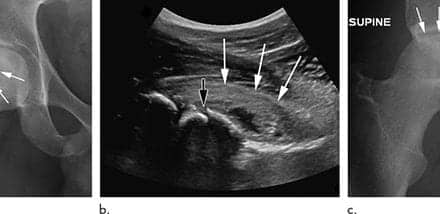Medical errors pose a serious threat to patient safety and are estimated to account for more than 250,000 deaths in the U.S. each year. While few studies have analyzed the frequency and nature of adverse events in interventional radiology, published data suggest that many adverse events in this field are preventable and frequently involve technical mishaps such as improper device positioning and device misuse or malfunction.
In a review article in the journal Radiology, researchers from Boston University School of Medicine (BUSM), suggest there is a critical need to renew understanding of adverse events and complications within interventional radiology. They also call for a robust recommitment to patient safety and quality assurance in clinical practice, continuing medical education and graduate medical education.
According to the researchers, most interventional radiology procedures are successful, and the majority of patients undergo no adverse events or minor complications. “When complications do occur, however, they can be associated with considerable morbidity and treatment of these complications can lead to more invasive correctional procedures, thus exposing the patient to even greater cumulative risk of harm,” explains corresponding author Mikhail C.S.S. Higgins, MD, MPH, assistant professor of radiology at BUSM.
While interventional radiology is associated with numerous systemic factors that carry an increased risk of medical error and may result in preventable patient harm, Higgins believes these risks may be lessened by further acknowledging the unique factors that facilitate adverse events in the specialty and continuing the development of safety practices that address and strengthen known areas of weakness.
Higgins stresses that widespread cultural changes that encourage blame-free error reporting and education initiatives focused on prevention and management of procedural complications can be advantageous in bettering the safety practices in interventional radiology.
“With an improved understanding of the causes of medical error and the nature of complications, physicians may begin to take the precautions necessary to mitigate the deleterious impact of medico-legal exposure,” adds Higgins who also serves as associate director for the early specialization in interventional radiology program at Boston Medical Center and the founding chair of the Radiology Interventions Safety, Quality and Complications Symposium.
“By choosing to embrace a reinvigorated commitment to patient safety and quality assurance in interventional radiology practice and education, the specialty can continue its steadfast evolution on a progressive trajectory that ensures a continued and more optimized quality of care for its patients,” Higgins adds.






